⮮ Selections
Now concerning things offered to idols: We know that we all have knowledge. Knowledge puffs up, but love edifies.
1 Corinthians 8:1
Daily Bible Verse
The Bible
A Broad Overview
Creation

From the beginning, God had a plan—an Old Method designed to teach us about life and death, religion and law, good and evil. This plan unfolded in a temporary world, filled with fleeting possessions, means, and purposes. Yet, this Old Method was never meant to last. One day, it will give way to the New—the eternal plan of God, bringing forth a new life, a new earth, and a purpose that will never fade. God was creating His perfect family in Heaven, and through His unfolding plan, He was drawing humanity back into relationship with Himself.
The Old Method - The Old Testament
In the beginning, God created the heavens and the earth.
God, who is love, created all things for His glory. He lacked nothing but chose to share His glory through creation.
Humanity chose independence from God, and in His love, He granted them that choice. Yet God knew that for the rebellious heart to be humbled, mankind would need to witness what lay beyond His light. Through this, we would come to understand both the weight of separation and the depth of His love, ultimately revealed in the sacrifice of His Son. In His sovereign plan, God allowed Satan’s rebellion to serve as a doorway—offering humanity a choice: to follow Satan into darkness or remain in the light of God.
Death

Humanity chose independence from God, stepping out of His light and into the darkness of a world without Him. Separated from the love, guidance, and nurturing hands of the Father, mankind was left blind and lost, fumbling through the void while Satan lurked at every turn, leading us further into the abyss. Our rebellion birthed sin and chaos, as we sought fulfillment in ourselves and from one another, yet always falling short. Independence from the Giver of Life brought evil, anger, war, and death—not just to humanity, but to all creation. The consequence of rejecting the Sustainer of life was death in every form, culminating in the ultimate loss—eternal separation from God.
Evil
God granted us independence, but with that freedom came the rise of great evil in humanity. Instead of unity and peace, we fell into division, abuse, and violence, wounding and even destroying one another. Our arrogance led us to believe we could thrive apart from God, but history proved otherwise. Left to ourselves, we failed to build a world of lasting peace, truth, and love—one that truly sustains life. Our wickedness grew so great that God cleansed the earth with a flood, wiping away the corruption of mankind. Yet even that did not break our stubborn rebellion.

The Remnant
God set apart a people for Himself to bring salvation and reveal His ways to all humanity. He chose a man named Abraham, making a covenant with him—promising land, protection, and countless descendants in exchange for his faith and obedience to God’s path.
The Exodus – A Symbolic Journey Toward Heaven

During a time of oppression, God's chosen people, the Israelites, were enslaved by the Egyptians. In their suffering, they cried out to God, and He heard their plea, coming to rescue them and lead them to the Promised Land. This journey serves as a powerful symbol: Egypt represents the fallen world, Pharaoh symbolizes Satan, slavery reflects our bondage to sin, and the Promised Land foreshadows Heaven—our ultimate place of freedom and rest in God.
God came down in a Holy cloud to save and dwell with His remnant. He made a promise with them, an Old Covenant, that if they were obedient, they would be blessed, and if they disobeyed, they would be cursed. As they began a 10-day trip to the Promised Land, God gave the people commandments to follow, laws to live by, and rules to obey.
The Israelites were commanded to build a tabernacle—a portable sanctuary where God's presence would dwell among them. It was the center of their worship, where they would offer sacrifices and seek atonement for their sins as they journeyed through the wilderness. Life under this system was rigorous, marked by constant sacrifices, strict laws, and detailed rituals. The tabernacle was the only means by which they could commune with God, yet His presence remained veiled behind a curtain. Only the High Priest could enter the Most Holy Place to intercede for the people, but if he approached in an unclean state, he would perish. For God to dwell among His people, they had to be purified.
What should have been a ten-day journey stretched into forty years because of Israel’s failure to trust in God. Even after the next generation finally entered the Promised Land, they continued to stray, rebelling against the very God who had delivered them from Egypt. Time and again, God sent prophets to call His people back, exposing their sin and urging repentance. Yet, beneath these rebukes lay a greater promise—a prophetic glimpse of redemption. Through His prophets, God foretold a new covenant, a coming salvation by His grace, through which He Himself would rescue and restore His people.
A New Covenant
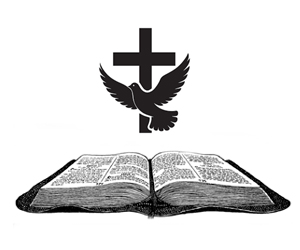
By this point in the Old Testament, the lessons God was revealing to humanity had become clear.
First, left to ourselves, we are lost. We cannot find our own way, we cannot live in lasting peace with one another, and we are incapable of creating a life that endures—we only produce death.
Second, trying to reach God through religion—by sacrifices, laws, and rules—is both impossible and lifeless. It is not true communion with Him but an exhausting cycle that leads nowhere. God does not desire a life of rigid obedience to rules; He desires our hearts.
Third, God’s plan was never to improve this broken world but to rescue us from it, bringing us back into His light. His goal is not to reform society but to restore His children, drawing them into a life-giving relationship with Him—one that bears fruit, not through effort, but through abiding in Him.
Leaving the Past Behind
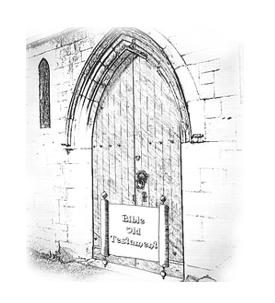
The Old Testament reveals humanity’s struggles, suffering, and the consequences of living apart from God. Yet, it also showcases the blessings and peace that came through obedience to Him. Through these accounts, we witness their sorrowful laments over the battles they brought upon themselves and their songs of praise when they experienced God's faithfulness and grace.
The question God asks through the Old Testament is this: Are you done trying to be your own god, living for yourself? Are you weary of a life filled with conflict, restlessness, and discontent—a life that feels meaningless, purposeless, and barren? Have you realized that without Me, you are lost? Have you become aware of your sin, of the evil humanity inflicts upon itself? Do you truly desire salvation—not for a better life in this world, but to be rescued from yourself and this fallen world? Do you long to return to the light and escape the darkness? And if you seek salvation, is it only to live by rules and laws, or do you desire to live by My love and grace?
The New Testament
God's New Promise - His Grace and Kingdom Appear
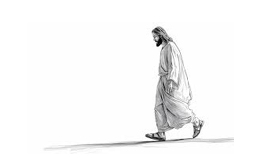 In the Gospel of John, he introduces a mysterious figure he calls "the Word." This Word was the fulfillment of God's grace, the promised Kingdom foretold by the prophets—the new covenant that would bring salvation, life, and a transformed heart to those who received it. But who was this Word, the one who was with God in the beginning, who was both with God and was God? It was Jesus, of course.
In the Gospel of John, he introduces a mysterious figure he calls "the Word." This Word was the fulfillment of God's grace, the promised Kingdom foretold by the prophets—the new covenant that would bring salvation, life, and a transformed heart to those who received it. But who was this Word, the one who was with God in the beginning, who was both with God and was God? It was Jesus, of course.
Where the Old Testament fell short, the New Testament would prevail. Where Adam failed, Jesus would overcome. Where the Old Covenant could not bring life, the New Covenant would bring victory.
Jesus’ Life and Sacrifice
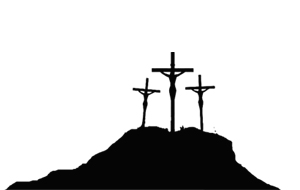
Jesus came to earth and lived in perfect obedience to the Father, remaining pure in the face of Satan’s temptations and the enticements of the world. Where humanity repeatedly failed to live clean and obedient lives, Jesus succeeded, even to the point of His death on the cross. He came with grace, offering God's Kingdom and inviting us to hear His voice, for those who are truly God's children would recognize it. Through His sacrifice on the cross, Jesus tore the veil that separated us from God, making it possible for us to dwell in His Kingdom. No longer would we need to offer animal sacrifices, for Jesus became the once-and-for-all sacrifice. We no longer have to follow laws and commandments to be in God's presence; instead, we follow Jesus in love, and through Him, God creates a heart within us that desires to obey His commands, leading us to true life.
The Twelve

Jesus prayed to God on a mountainside, seeking wisdom to choose those who would walk alongside Him in His mission. He selected men from all walks of life—those who loved Him and would remain faithful to His purposes, committed to carrying out the work He had set before them. Where the 12 tribes failed, the Disciples would eventually live and die for the Kingdom.
The Acts of Apostles
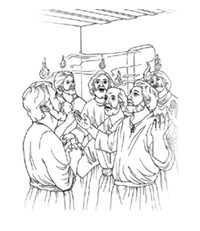
The Book of Acts reveals what it means to live empowered by the Holy Spirit, providing a model for how born-again Christians should live. It tells the story of Jesus guiding His followers through the Spirit, sending them into the world to invite all nations to submit to His reign. Acts marks the birth of the Church, documenting how people came to faith, turned away from the world, and dedicated their lives to God's service. It shows us what God's Church looks like and how it should live in alignment with His will.
Living in the Spirit and Community
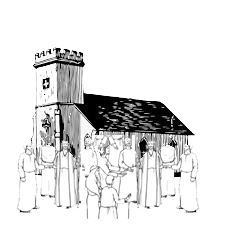
The importance of living out the Christian faith in community is evident throughout the New Testament. Believers are called to make disciples, share the gospel, and live in unity, not as a social club, but as an army of soldiers for God. The Holy Spirit empowers the Church to be the hands and feet of Christ in the world, advancing God’s Kingdom with purpose and power. Together, we fight for His Kingdom, bringing it to earth as a foretaste of the ultimate restoration to come, where God's reign will be fully realized.

Hope for Glory
The New Testament also teaches us that our salvation is not just about escaping this fallen world but being transformed into the image of Christ. We are to become His disciples, walking in His steps, and growing in righteousness, love, and holiness as we await His return. Our future hope lies in the promise of eternal glory with God, where there will be no more tears, no more pain, and no more death.
The Kingdom Come
Through Jesus, the Kingdom of God has come near, and one day, it will come in its fullness. In the final restoration, God will create a new heaven and a new earth, where His people will dwell with Him forever in perfect peace. All things will be made new, and we will reign with Christ for eternity.

Conclusion
From the Old Testament to the New, God’s message has remained constant. He desires to rescue us from sin and death, to transform our lives, and to bring us into eternal fellowship with Him. The Bible reveals God's unfolding plan, from the first promise in Genesis to the final victory in Revelation. Through Jesus, we are invited into this eternal story of redemption, living with the hope of a future restored, where His Kingdom reigns forever.








